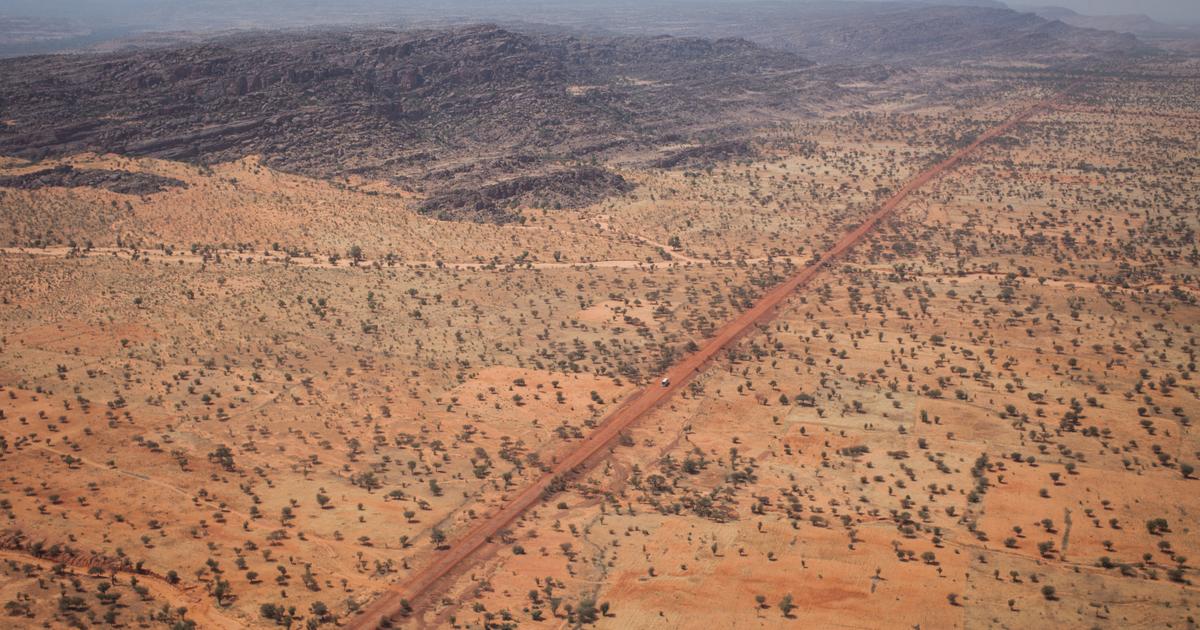Alimata Ouedraogo is silent and with a lost look.
“She is traumatized because they came to Kalsaka and killed people,” clarifies a friend of hers, who explains how jihadist violence forced the woman to flee her village, in northern Burkina Faso, with a limp and on crutches.
A group of people picked her up halfway and helped her get to Samagán, a neighborhood in Bobo-Dioulasso (the economic capital of the country).
Now, she tries to continue with her life along with other women who also fled.
Ouedraogo is one of the 1.8 million internally displaced people in Burkina Faso, of whom 50.3% are minors and 22.9% are women, according to data from the UN Office for the Coordination of Humanitarian Affairs. (OCHA, for its acronym in English).
Burkina Faso, along with Mali, is one of the main sources of jihadist violence in the Sahel.
For a decade, groups linked to Al Qaeda have been hitting the region, although in 2022 they made a qualitative leap in their harassment strategy and launched operations to isolate the main cities of the two countries.
In the first six months of 2022 alone, at least 2,155 lost their lives in Burkina Faso, 200 less than in all of 2021, according to the count of José Luengo-Cabrera, a data analyst specializing in the Sahel.
The attacks are mainly concentrated in the north and east of the country, specifically in the administrative regions of the Sahel, East and Center-North.
“My heart aches when I see displaced women begging for money on the road.
Their children grow up next to traffic lights, knocking on car windows to beg.
They are no longer afraid," laments Solange Traoré, president of the Femmes Battantes (Fighting Women, in French) association that welcomes them.
Because if they are not given a way out, "terrorism will never end," she predicts.
In June 2022, in order to offer them an alternative for a dignified life, Traoré acquired a five-hectare piece of land where the women she shelters work.
“The camp for displaced women”, as they have named it, is located in Matourkou, about 30 minutes by car from Bobo-Dioulasso.
Most internally displaced persons in Burkina Faso are hosted by relatives or acquaintances, usually of the same ethnic group.
Alimata Ouedraogo is from the Mossi.
A group of people from the same community picked her up along the way as she was fleeing her village, which had been attacked by jihadists, and helped her reach Samagán, a neighborhood in Bobo-Dioulasso, the economic capital west of the country.Èlia Borràs
Awa, left, and Kadiratou, center, pose with the latter's daughter, Aila.
They welcomed Ouedraogo in his house in Bobo-Dioulasso.
Èlia Borràs
Solange Traoré is the president of the organization Femmes Battantes (Fighting Women, in French) and the women's coordinator for the Haut-Bassins region, whose capital is Bobo-Dioulasso.
She went to the governor of the region, the director of the Bobo-Dioulasso Chamber of Commerce and the Minister of Agriculture to get seeds and organic fertilizer for the fields.Èlia Borràs
A day's work in the Matorukou camp, on the outskirts of Bobo-Dioulasso.
In the photograph, displaced women plant beans, a food that in the last five years has gone from costing 150 CFA francs (0.22 euro cents) per kilo to 300 CFA francs (0.45 euro cents).Èlia Borràs
Rest time to eat.
Awa Pagabelem, from the Femmes Battantes association, has prepared rice with beans for all the co-workers.Èlia Borràs
During break time, when the sun is strongest, Clarissa Christine tries to take a nap, something that her classmates prevent at all costs.
In the background of the scene, she sees the corn plantation, a staple cereal in the Burkinabe diet with which tô is prepared, a ball that is usually accompanied by spinach, tomato or peanut sauce.
Èlia Borràs
Although Poline's main occupation is making cornmeal, in her free time, she works in the field for displaced women.Èlia Borràs
Marceline (right), has taken advantage of the fact that it is Sunday to go help collect the fruits of the harvest.
Djamila (left) is another of the displaced young women who has arrived in Bobo-Dioulasso.Èlia Borràs
Both the harvest and the collection, the separation of the pods and the shelling are manual processes.
One of the objectives that the women of Femmes Batantes have is to build a well to be able to harvest all year round.
In the image, the children of the president, Solange Traoré, help in the collection of beans from the "camp of the displaced". Èlia Borràs
Although more than 80% of the population of Burkina Faso is dedicated to agriculture, the low yield of the activity, the lack of investment and the violence force many people to flee and leave their harvests half done.
In addition, the consequences of climate change have implied a rise in prices that means that people cannot receive the food they need.Èlia Borràs
Maimuna (left) and Azeta (right) fled from Namssiguia, in the southwest of the country.
After 490 kilometers on foot they reached Bobo-Dioulasso.
They spent some time begging in the city until they met Solange Traoré, who suggested they work in the fields during the rainy season.Èlia Borràs
Maimuna is one of the few displaced women who clearly explains how she fled her village and walked for five days until she reached Bobo-Dioulasso.
Most prefer not to speak or have diffuse memories.
For the first time, the organization Doctors Without Borders has deployed psychological help in the camps.
The State also offers this service to women who come to the city.Èlia Borràs
Zerbo welcomes 20 women with their children into his home.
During her free time, she also helps out in the camp for displaced women.
In the image, she separates the pod from the leaves.Èlia Borràs
The mototaxi is the most popular and practical form of transportation in Bobo-Dioulasso.
The driver spends the day making trips with sacks of beans to his house, where the women wait to separate the leaves from the grain.
In this case, it is Solange Traoré who pays, out of her own pocket, for the service.Èlia Borràs
Abibata, 2, walked with her mother, Sarata, from Dankanaou —in the Sahel region— to Bobo-Dioulasso, to flee jihadist violence.
Along the way they met other women with whom they now live in the city and help each other.Èlia Borràs
The Bobo-Dioulasso Association for Women's Empowerment organized a campaign to buy feminine hygiene kits (toothbrush, sanitary towels, soap, sponge and toothpaste) for displaced women.Èlia Borràs
Salimata (on the left), Sarata (in the center, in a yellow shirt) and Maimuna (on the right) work to shell the harvested corn.Èlia Borràs
“Will there be hunger tomorrow? We ask ourselves every day,” he says, while gathering beans — 69% of the population in the Sahel region and eastern Burkina Faso lives in food insecurity.
The days, during which the women organize themselves in a line and dig at the same time, advancing in the same direction, are from sunrise to sunset or until the work is done.
The situation in Burkina Faso, recognizes Traoré, is sustained by mutual aid and solidarity between peers, in the face of a State that does not respond, he protests.
This is recognized by an official of Social Action, the ministry responsible for welcoming and guiding people displaced by violence.
"The State is insufficient," admits the man, who prefers to remain anonymous because, he says, after the coup d'état of September 30, 2022 - led by a group of soldiers led by the current president of the transition, Captain Ibrahim Traoré—, showing your face, making decisions or speaking can cost anyone their job.
"The first thing we give is psychosocial care, because someone who had everything and loses it from one day to the next, is traumatized," he says, while registering the number of displaced women who arrive in Bobo-Dioulasso, one of the safest cities , still under state control, next to Ouagadougou, the capital of the country.
"The men don't come," he says.
According to the official, the reason is that some join jihadist groups, while others stay in the villages or are part of the Homeland Defense Volunteers, popular militias created by former President Roch Marc Christian Kaboré in 2020 to fight terrorism.
We just want our children to be able to go to school and not be everything they have seen in town
Zanata, survivor of jihadist violence
Azeta, 25, is one of the women who works in the Femmes Battantes field.
She walked five days to reach Bobo-Dioulasso, after the jihadists reached her town, near Ouahigouya, in the north of the country.
Along the way she met Sarata, Maimuna, Salimata, and Zanata, between the ages of 30 and 50, with whom she now shares a roof on the outskirts of Bobo-Dioulasso.
“The terrorists came and started killing people,” explains Maimuna, who is the only one who can bear to talk about it.
The others are not capable.
Their voices falter or they look at the ground and cover themselves with the veil.
"We left like this, with the clothes you see and our children," Azeta confesses shyly.
“We just want our children to be able to go to school and not be everything they have seen in town,” Zanata asserts,
Boooooo-pump-pump-pump
.”
All of them live together in a house under construction that does not exceed 10 square meters.
There are only bricks and an iron gate.
Each one puts what she can to pay the rent of 10,000 CFA francs per month (15 euros).
"During the day we would walk and ask for food, and at night we would sleep in the forest," says Azeta, about her escape.
“Here, in Bobo-Dioulasso, they have welcomed us with open arms”, Azeta rejoices.
69% of the population of the Sahel region and eastern Burkina Faso lives in food insecurity
However, Traoré does not know how long he will be able to "hold the ground."
He dedicates part of his salary to pay for food during work days, transportation by motorcycle taxi, grain and fertilizer.
But her work does not end at Femmes Battantes: she also coordinates the women of the Haut-Bassins region, whose capital is Bobo-Dioulasso.
She has a three-year mandate granted by the Ministry of Women, Family and Social Action with the aim of giving voice and representing women in political decision-making spaces.
A task that she always keeps her in a situation of inferiority and minority.
Currently, she is the only woman who is part of the Special Delegation of the Hauts-Bassins Region, a new governance structure,
This season, at least two tons of corn and two tons of beans have been collected in the "displaced women's field."
"The corn hasn't come out very big because the land needs more fertilizer, and the bean has gone up in price," he laments.
This has been the first harvest and now they are assessing how to distribute their fruits and make calculations for next year.
“If this gets worse, we will need more than five hectares,” she says.
But that is a future concern, to which Traoré still cannot dedicate time.
Meanwhile, Azeta and her companions sing and applaud the luck of the day and the work done.
They have a lunch box with field beans and rice to share.
“We eat beans!” they cry.
You can follow PLANETA FUTURO on
,
and
, and subscribe
here
to our 'newsletter'
.


/cloudfront-eu-central-1.images.arcpublishing.com/prisa/KEJKPQHVMJAPJONPEDK42JL56U.jpg)
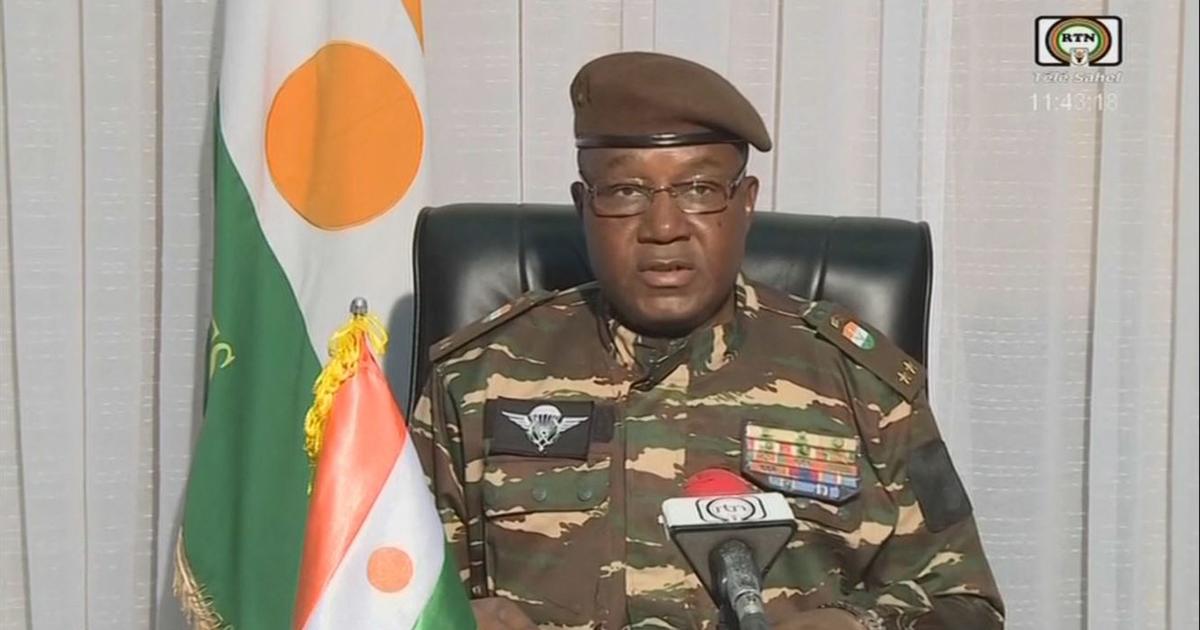
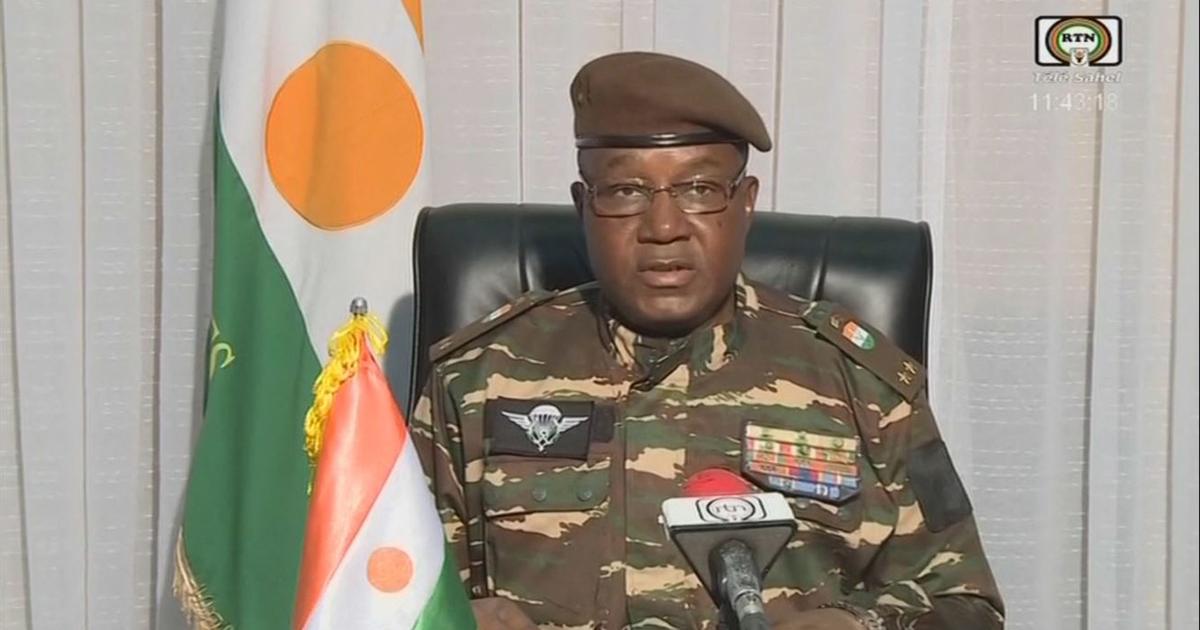
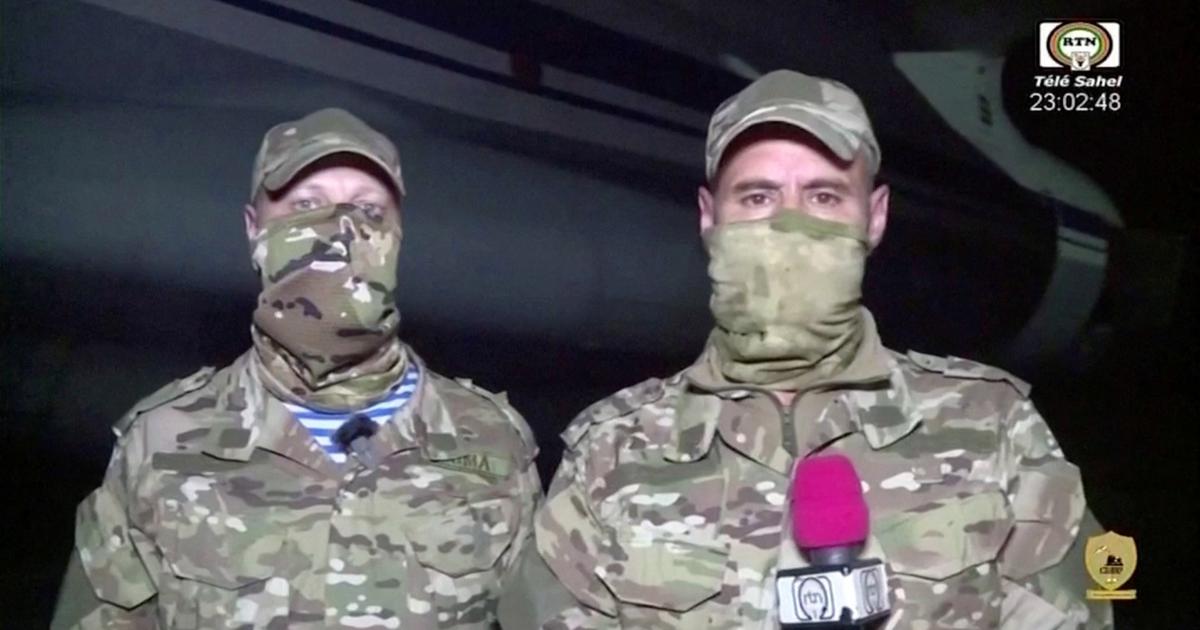
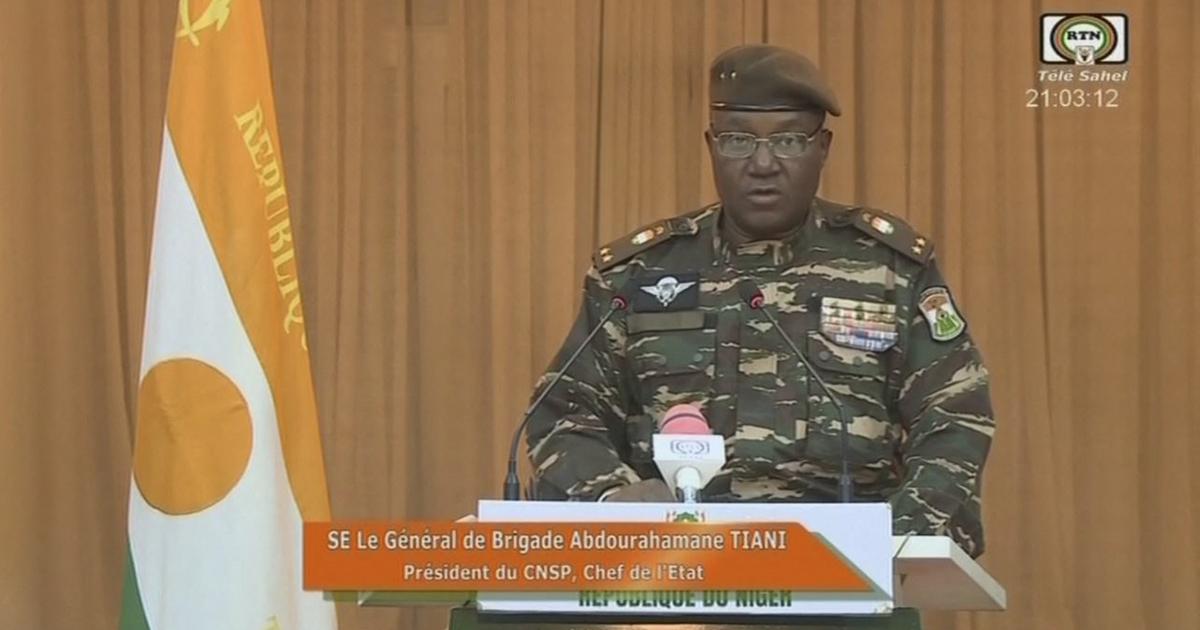
/cloudfront-eu-central-1.images.arcpublishing.com/prisa/LEW6QMWWHNE5FNIE3XEQGWJXMQ.jpg)
